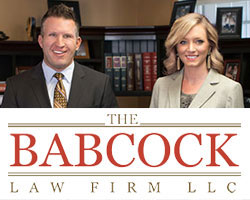Social media networking sites like LinkedIn, Facebook, Twitter, or Google+ have opened up the scope of marketing in the digital world. While this may be a great tool, it can come at a high price if not used correctly. Moreover, you should take the time to consider how ethics rules play into your online communications—especially in the legal world.
1. Be aware: social media profiles and posts may constitute legal advertising. Many lawyers may overlook social media profiles and posts – in some states these communications could be considered legal advertisement.Also related, in some instances, creating a profile may lead the social media platform to label the lawyer as an expert or specialist. Typically, lawyers are prohibited from labeling themselves “specialists”. Sometimes these labels are site generated and the person completing the profile may not be able to remove them.
2. Avoid making prohibited solicitations. By design, social media allows communication on many different scales. Thus, the rules prohibiting solicitations means that legal professionals need to evaluate their posts before sending them (either public or private). Things to avoid include Facebook “friend requests” or LinkedIn “invitations” offering legal services to a non-lawyer without an existing relationship.
3. Do not disclose privileged or confidential information. This should be a no-brainer. However, posters need to be sure that they do not (even inadvertently) disclose private information, including the identities of current or former clients. Moreover, casual use of geo-tagging in posts or photos should be avoided as it may inadvertently reveal your location when traveling on client business.
4. Do not assume you can “friend” judges. Be cautious with “friending”. While real-world friendships between lawyers and judges will happen, they are subject to ethical constraints. Remember that online friendships are bound by the same ethical constraints.
5. Think before you type
- Avoid Communications with Represented Parties. Since it is forbidden for lawyers to communicate with someone who is represented by counsel without permission of said counsel in the real-world, it is safe to assume the same would be true online. No lawyer should send a Facebook friend request or LinkedIn invitation to opposing parties to gain access to private social media content.
- Be Cautious When Communicating with Unrepresented Third Parties. Lawyers should be cautious in online interactions with unrepresented third parties—especially when trying to obtain potentially useful information for litigation. Publicly viewable info is free game. But if the info is sought out, ethical constraints may come into play.
Social media can be a monumental help to any business (even a law firm) if properly utilized. In order to find out how your law firm can take advantage of other marketing strategies or any other aspect of your practice, please contact us. For further information about other news pertaining to legal issues, please continue to browse our website at https://www.seolegal.com.






